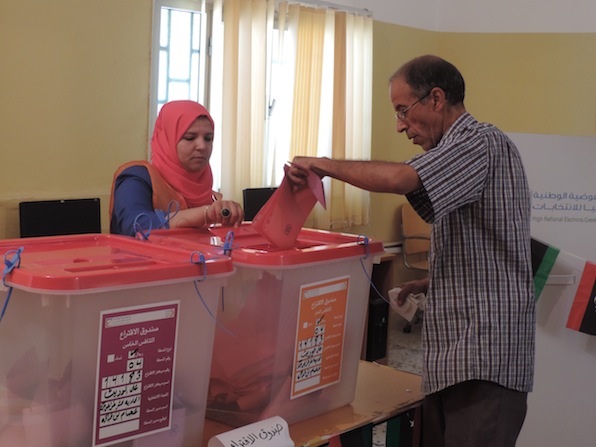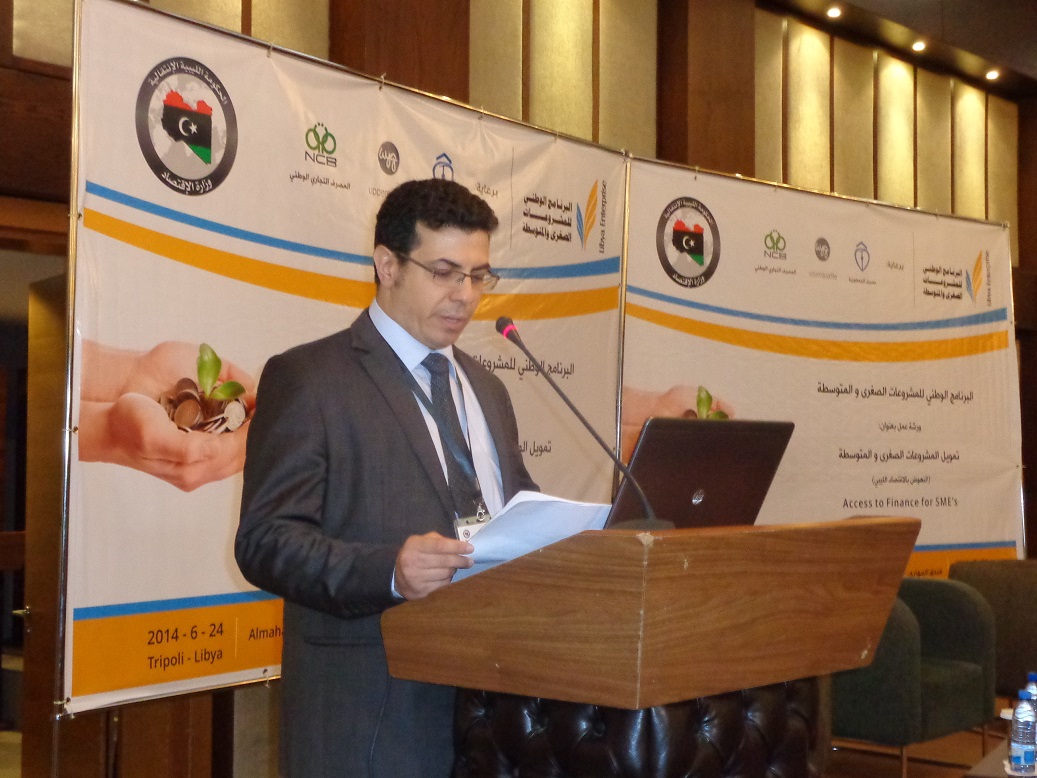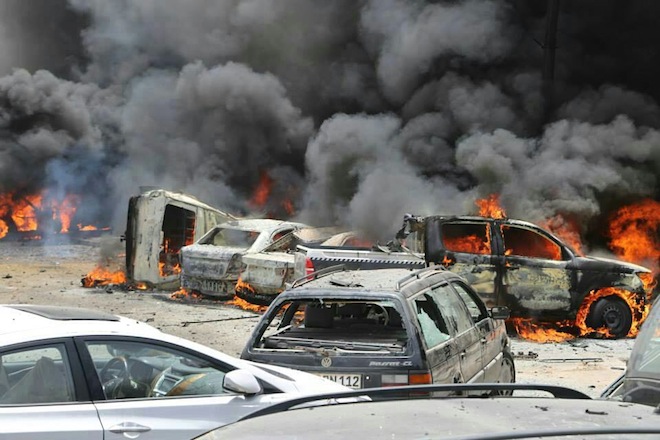By Callum Paton and Seraj Essul.

Tripoli, 26 June 2014:
Braving heats of over 40 degrees centigrade, Tripoli’s voters cast . . .[restrict]their ballots today across the city’s electoral constituencies.
While by midday less than 20 percent of Tripoli’s registered voters had made their way to the polls, those who had were determined to make sure their voices were heard through the ballot box.
At 10 am at the Ali Warayith School in central Tripoli, polling station manager Ishmael Ali Kilani told the Libya Herald that voting had been a little lower than expected but that it would pick up by the evening. He had a total of 2,981 voters registered at his electoral centre.
Polling station staff member Aisha Mahmoud Abdul Salem said turnout had been lower and that the atmosphere had not been the same as for elections to the General National Congress (GNC). “In those elections people were energised and they were happy, full of hope,” she said. It was Salem’s fourth election at the polling station in central Tripoli and she said now she was “addicted to elections”.
Senior observer for the elections Abdul Rahman Al-Oradin and member of the Libyan Association for the Prisoners of Opinion had visited five electoral centre in the two hours since voting had begun. He said the polling centres had opened perfectly and added that it was “the first priority of all Libyans to strengthen democracy”.
Oradin spent five years in prison for undermining the Qaddafi regime in 1993.
Khalifa Al-Aghali, 75, voted for his Nasserist friend and had participated in elections under King Idris in the 1950s. He said the elections today in Libya were a continuation of life before Qaddafi. “We do not want it to be the same as before,” he said. “We want it to be better.”
“Qaddafi was not so bad to begin with”, he continued, “but he went crazy. The people he surrounded himself with were crazy. These members of the Congress though, they were just crazy from the start”, Al-Aghali said. “The GNC was a total failure. They dragged us back 100 years. Things will be difficult for some time but this will not be permanent.”
Outside the polling centre at Doha School in Hey Andulus one voter, an oil worker, said infighting between the political parties had been the reason for such high levels of voter apathy. Nevertheless, he felt banning candidates from running along party lined had been a mistake.
“The first congress was divided between the National Forces Alliance and the Islamists,” he explained. “But you cannot build democracy without parties. If they are not in a party many [members of the House of Representatives] will change their positions.” He would not say who he had voted for but did say that he had not voted for an Islamist.
Inside the polling centre, House of Representatives candidate Hana Khalifa Abodeed was voting with her family. She similarly felt it was unlikely, despite electoral laws saying all candidates had to run as independents, that political blocks would not dominate the new parliament.
“It will of course be the case that the parliament will divide into Islamist and National Forces Alliance blocks,” she said. “If the Alliance proposes legislation I agree with, then I would vote with them,” she added.
“The people are standing with us because they are fed up with the Islamists,” she said. “They neglected the army and the police and ignored the security situation.”
Abodeed conceded however that voters’ disillusionment extended beyond just Congress’s Islamic block.
“People have stated to hate putting their fingers in the ink, people have started to hate elections,” she said. “But if candidates stand by their promises trust can be rebuilt,” she stressed.
Waleed Al-Mansouri a security consultant and an Amazigh, said the greatest challenge facing Libya was disarming revolutionary brigades. Both parties in Congress, he added, had acted in the own interests.
Mansouri, who said he was “Libyan first and Amazigh second” said his ethnic group had nothing to fear from the House of Representatives. He said he had boycotted elections to the Constitutional Drafting Committee over issues concerning the Amazigh language. “The electorate’s trust could be won back quickly if those on power had the will to change,” he concluded.
[/restrict]










